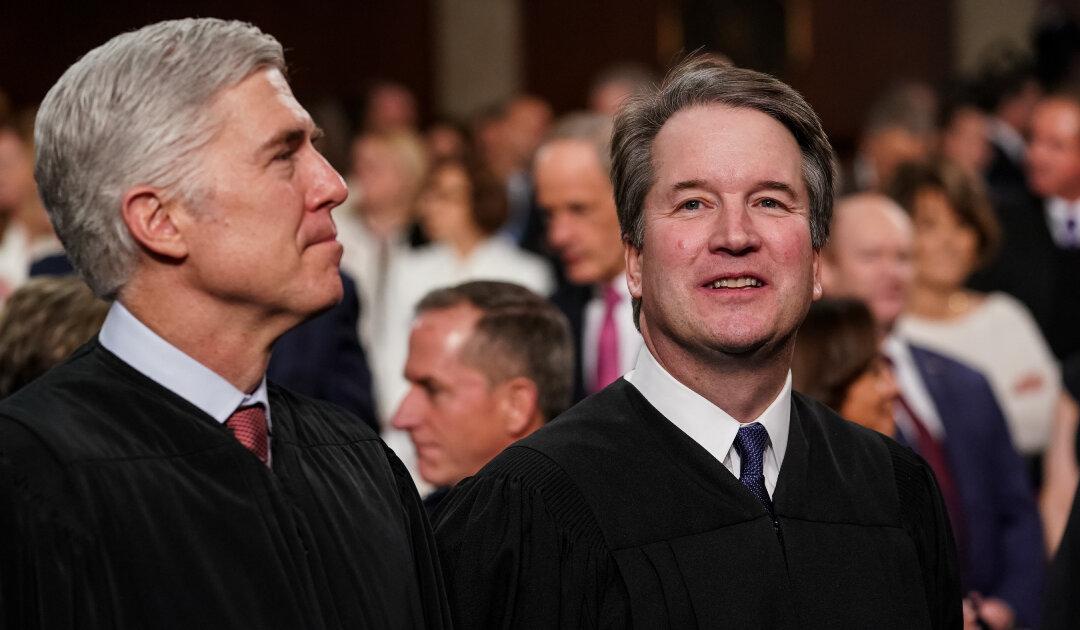Mississippi is working toward enacting one of the strictest abortion laws in the nation, in a race with other states to push a legal challenge to the more conservative U.S. Supreme Court.

Supreme Court Justices Neil Gorsuch and Brett Kavanaugh attend the State of the Union address in the chamber of the U.S. House of Representatives at the U.S. Capitol Building on February 5, 2019 in Washington, DC. Doug Mills-Pool/Getty Images
|Updated:




